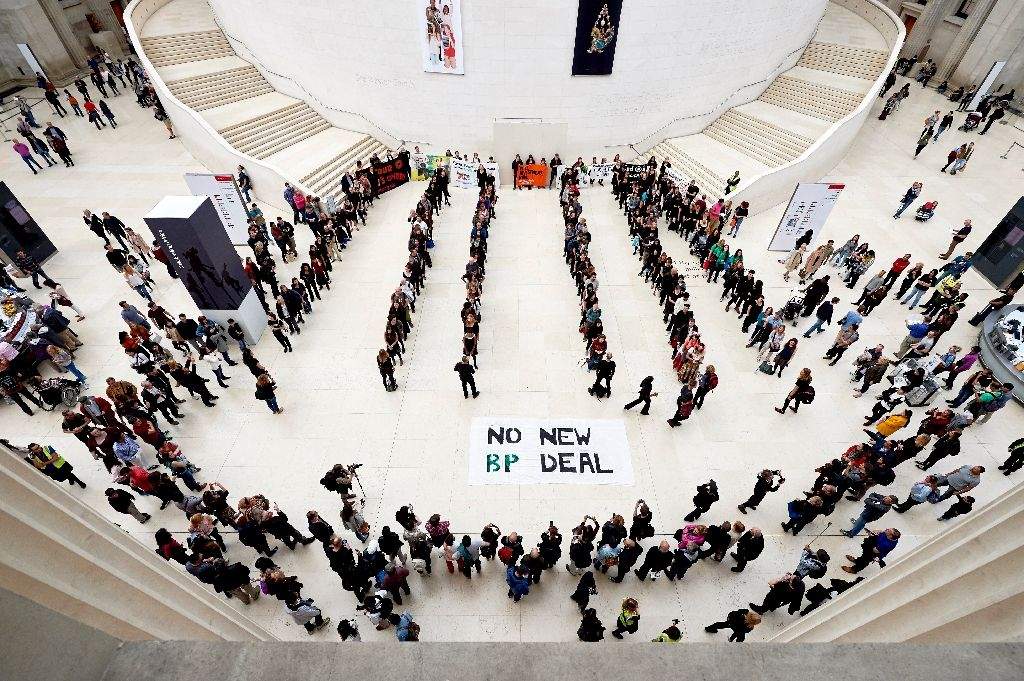In England, BP's highly criticized sponsorship of the British Museum is at the center of debates
Discussions around the highly criticized sponsorship that the oil company British Petroleum (BP) has been granting for a very long time (more than two decades: the first agreement dates back to 1996) to the British Museum in London are not beginning to end, so much so that now pro-climate (and therefore anti-BP) activists are back to clamor for an end to it. In February, the British had also undergone anoccupation in protest of BP’s support for the I am Ashurbanipal exhibition, and in that case concerns about climate were compounded by concerns about heritage (in fact, many of the exhibits come from spoliation that took place in colonial times). Not only that: those who criticize also point the finger at BP’s operations in Iraq, which activists say have been aided and abetted by the war that has torn the country apart for years, and which in any case do not contribute to creating wealth for the local population. “One of the most destructive companies in the world”: this is how BP was branded by activists of the BP Or Not BP committee during the February protest.
There are many acronyms protesting BP’s sponsorship: alongside BP Or Not BP, associations such as Greenpeace and Culture Unstrained are carrying on the same battle, and last week a group of about eighty artists (including some leading figures on the world stage such as Antony Gormley and Rachel Whiteread) wrote a letter to the National Portrait Gallery, which is also sponsored by BP, asking it to cut ties with the oil company. And also in late June, popular British actor Mark Rylance resigned from the Royal Shakespeare Company, one of the country’s leading theater companies, for the same reason: support from BP.
As for the British Museum, activists have returned in recent days to call for an end to sponsorship, especially since it is recent news that BP did not sponsor an exhibition devoted toArctic peoples. But so far all attacks have been rebuffed by the London museum. The British Museum’s director, Hartwig Fischer, has let it be known that the partnership will continue, in part because it is part of the museum’s future strategy: Fischer told the Financial Times that “cutting ties and closing a partnership that over the years has created extraordinary learning opportunities for people from all backgrounds is not a key contribution to solving the world’s environmental challenges.” He was echoed at a public event by BP CEO Bob Dudley, who said that calling for an end to support for culture is “the most bizarre approach” one can take in the climate change debate. Words that were immediately answered by Culture Unstrained, according to which Dudley “seems out of touch with reality.”
So BP’s money will keep coming, not least because the figures are significant: the British Museum and National Portrait Gallery (likewise, the latter’s director, Nicholas Cullinan, has rejected the attacks and let it be known that collaboration with BP will continue) receive the sum of 7.5 million euros from the oil company over five years. And the British Museum, also on its official website, calls the collaboration with BP “a success story,” rattling off data revealing that, over the years, 4.2 million visitors have visited exhibitions supported by the disputed company. Still, the protest, which has been going on for years, looks set to expand in the future.
Pictured: an anti-BP protest at the British Museum in 2015.
 |
| In England, BP's highly criticized sponsorship of the British Museum is at the center of debates |
Warning: the translation into English of the original Italian article was created using automatic tools. We undertake to review all articles, but we do not guarantee the total absence of inaccuracies in the translation due to the program. You can find the original by clicking on the ITA button. If you find any mistake,please contact us.





























